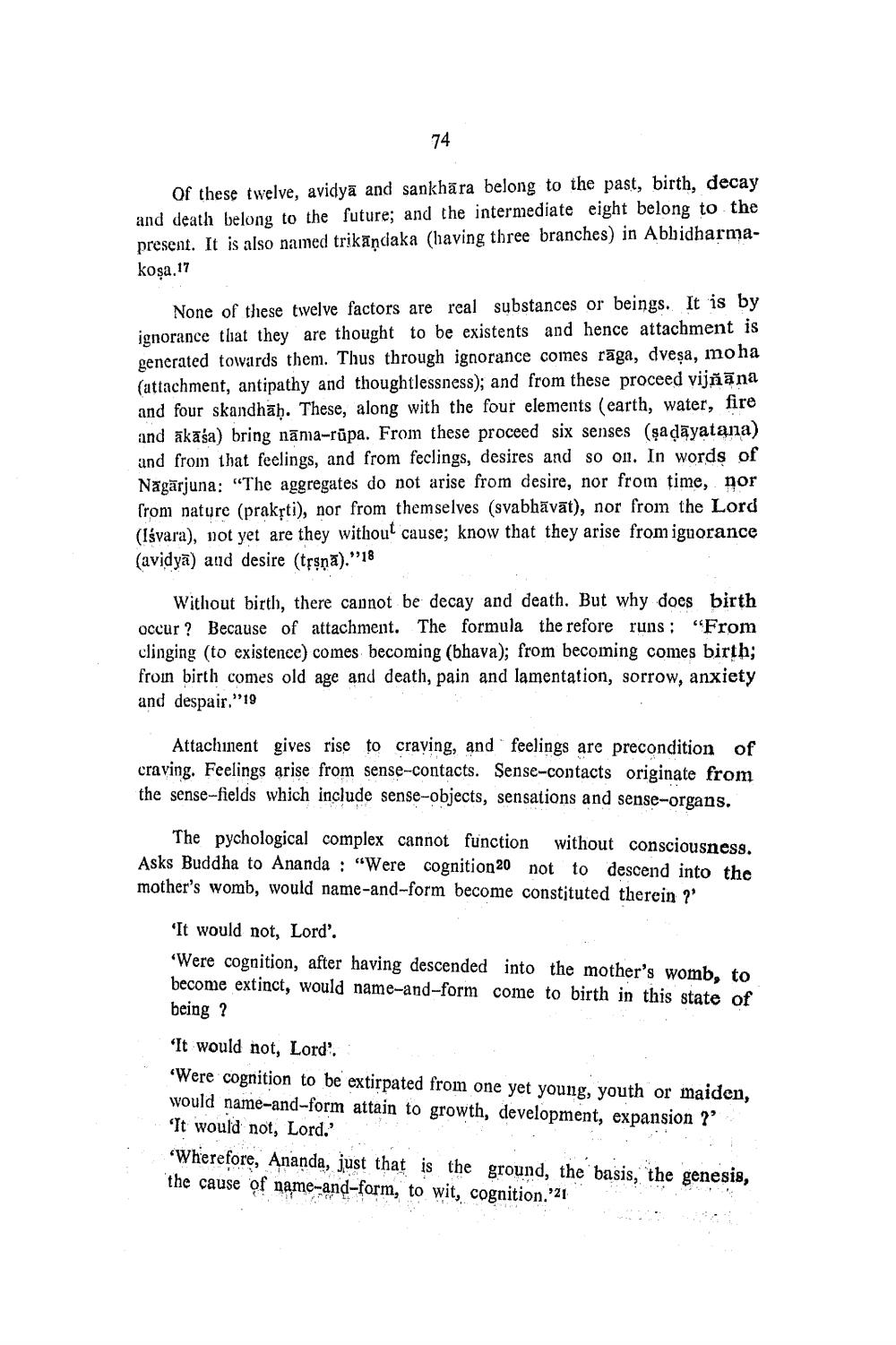________________
74
Of these twelve, avidyā and sankhāra belong to the past, birth, decay and death belong to the future; and the intermediate eight belong to the present. It is also named trikāņdaka (having three branches) in Abbidharmakoşa.17
None of these twelve factors are real substances or beings. It is by ignorance that they are thought to be existents and hence attachment is generated towards them. Thus through ignorance comes rāga, dveșa, moha (attachment, antipathy and thoughtlessness); and from these proceed vijñāna and four skandhāh. These, along with the four elements (earth, water, fire and ākāśa) bring nāna-rūpa. From these proceed six senses (şadāyatana) and from that feelings, and from feclings, desires and so on. In words of Nagarjuna: "The aggregates do not arise from desire, nor from time, nor from nature (prakrti), nor from themselves (svabhāvāt), nor from the Lord (Isvara), not yet are they withou' cause; know that they arise from iguorance (avidyā) and desire (trsņā)."18
Without birth, there cannot be decay and death. But why does birth occur? Because of attachment. The formula the refore runs: "From clinging (to existence) comes becoming (bhava); from becoming comes birth; froin birth comes old age and death, pain and lamentation, sorrow, anxiety and despair."19
Attachment gives rise to craving, and feelings are precondition of craving. Feelings arise from sense-contacts. Sense-contacts originate from the sense-fields which include sense-objects, sensations and sense-organs.
The pychological complex cannot function without consciousness. Asks Buddha to Ananda : "Were cognition 20 not to descend into the mother's womb, would name-and-form become constituted therein ?
'It would not, Lord'. "Were cognition, after having descended into the mother's womb, to become extinct, would name-and-form come to birth in this state of being ?
'It would not, Lord'. "Were cognition to be extirpated from one yet young, youth or maiden, would name-and-form attain to growth, development, expansion ? 'It would not, Lord.' 'Wherefore, Ananda, just that is the ground, the basis, the genesis, the cause of name-and-form, to wit, cognition.'21




